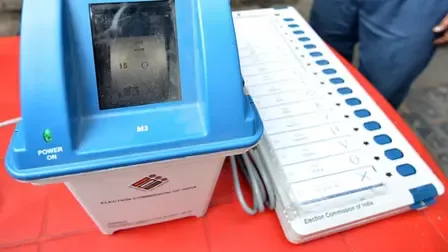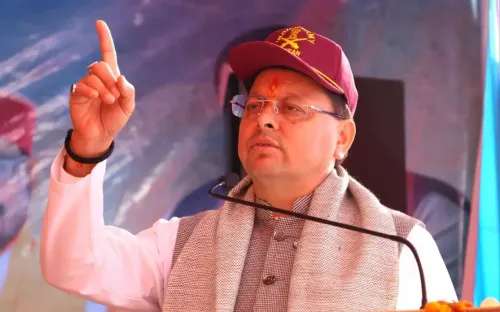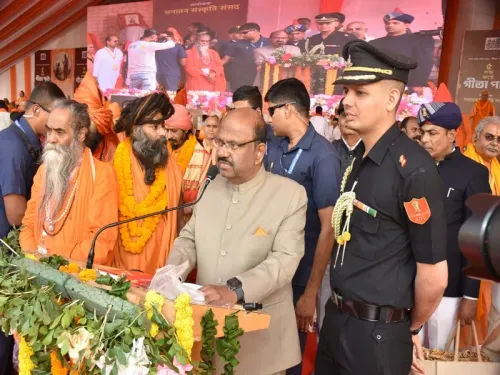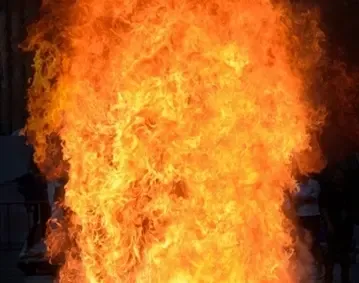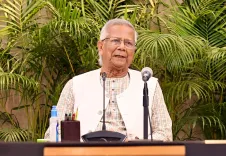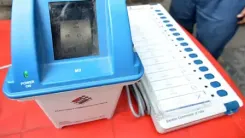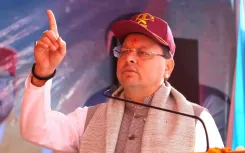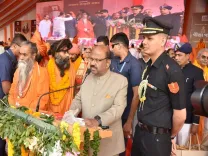Fare Increase for Bengaluru Metro: CM Siddaramaiah Accuses BJP of Misinformation
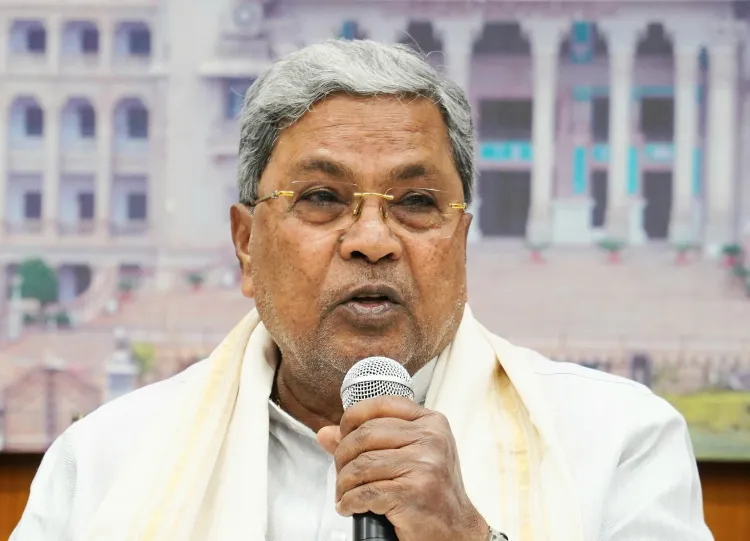
Synopsis
Key Takeaways
- Bengaluru Metro fare hike has sparked controversy.
- CM Siddaramaiah criticized BJP for misinformation.
- The fare revision was based on a central government committee.
- BMRCL operates as an autonomous body.
- New fare structure effective from Sunday.
Bengaluru, Feb 11 (NationPress) Facing criticism over the recent fare increase in Bengaluru Metro, Karnataka Chief Minister Siddaramaiah strongly criticized the opposition BJP, accusing the party of misleading the public with inaccurate information.
During a media briefing in Bengaluru on Tuesday, Siddaramaiah stated, “In response to the opposition regarding the fare increase of Bengaluru Metro Rail, I wish to share some factual information with the residents of Bengaluru.”
He remarked, “The BJP is once again deceiving the public with false and misleading information aimed at undermining the state government. While individuals have the right to challenge any government policy, which I wholly respect as a constitutional right, it is unacceptable for the BJP, in its role as the opposition, to intentionally propagate misinformation and incite public protests for political advantage.”
On one side, BJP leaders claim that the Metro Rail project is a success of the central government, yet when the public expresses discontent regarding fare increases, they blame the state government. This behavior is nothing short of deceitful, CM Siddaramaiah asserted.
The Bangalore Metro Rail Corporation Limited (BMRCL) was formed as a joint venture between the Central Government and the Karnataka Government, both holding an equal (50:50) stake. The current Chairman of BMRCL is Srinivas Katikithala, who also serves as the Secretary of the Union Ministry of Housing and Urban Affairs. Both central and state government officials occupy roles as Managing Directors and Directors, stated CM Siddaramaiah.
BMRCL functions as an autonomous entity, and the state government does not wield complete authority over its decisions. Similar to Metro Rail Corporations in other cities, BMRCL operates under the Metro Railways (Operation and Maintenance) Act, 2002, governed by the central government, the CM explained.
Since 2017, Metro fares had not been adjusted. Recognizing this, BMRCL reached out to the central government to request fare adjustments. If the state government had full control over Metro fares, why would BMRCL contact the central government instead of the state directly? CM Siddaramaiah questioned.
In response to BMRCL's request, the central government established a Fare Revision Committee, headed by retired Madras High Court Justice R. Tharani, which included representatives from both the central and state governments. The central government instructed this committee to finalize its recommendations within three months post its formation on September 16, 2024, the CM noted.
During this timeframe, the committee engaged in discussions with BMRCL officials and visited Metro corporations in Delhi and Chennai to analyze their fare structures and operations, he added.
When fares were originally established in June 2017, only 42.30 km of Phase 1 Metro was operational. Currently, with the partial completion of Phase 2, the network has further expanded. By December 2026, with the completion of Phases 2, 2A, and 2B, Bengaluru Metro is set to extend to 175.55 km, CM Siddaramaiah stated.
Considering all these factors, the committee submitted its report on December 16, 2024, consisting of 10 comprehensive chapters. The committee also examined fare structures of other Metro services in India, he noted.
Except for Delhi Metro, other Metro corporations across states had independently set their initial fare structures. However, fare revisions are now determined by a committee appointed by the central government, he insisted.
According to Section 37 of the Metro Railways (Operation and Maintenance) Act, BMRCL is legally obligated to adhere to the fare recommendations made by the Fare Revision Committee, he emphasized.
Thus, it becomes evident that the decision to increase fares was not solely made by the state government, and the claims by the opposition are misleading, CM Siddaramaiah concluded.
Demanding an immediate rollback of the Metro fare increase, a BJP delegation met with Metro MD M. Maheshwar Rao on Monday, labeling it the steepest fare hike in the country.
Bengaluru MLA Ravi Subramanya criticized the state government for already burdening the public with numerous price hikes and further increasing Metro fares by 46 percent. He also insisted on the necessity of providing essential facilities at Metro stations.
"The Metro is intended for the public. Prioritizing profits is not the correct approach. The project was initiated to alleviate Bengaluru's traffic congestion, and even the central government has provided financial support for this purpose. The fare increase is unjust," he asserted.
Last Saturday, the Bengaluru Metro Railway Corporation Ltd (BMRCL) declared an adjustment in Metro ticket prices, ranging from Rs 10 for a distance of 2 km up to Rs 90 for travel up to 30 km. The revised prices took effect from Sunday.
The official statement from BMRCL indicated that the new ticket prices are set at Rs 10 for distances of 0 to 2 km; Rs 20 for 2 to 4 km; Rs 30 for 4 to 6 km; Rs 40 for 6 to 8 km; Rs 50 for 8 to 10 km; Rs 60 for 10 to 15 km; Rs 70 for 15 to 20 km; Rs 80 for 20 to 25 km; and Rs 90 for 25 to 30 km. For distances over 30 km, the ticket price remains Rs 90.


